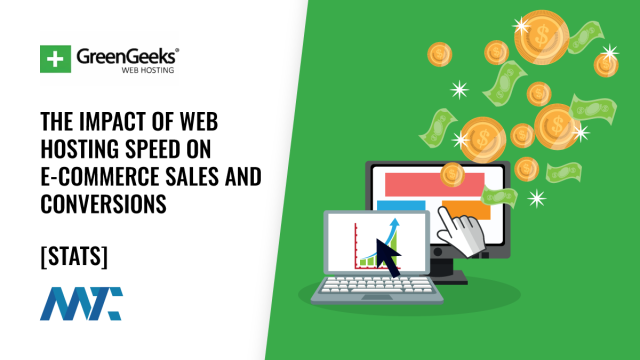The bandwidth specified within the hosting company’s plan determines the speed at which customers’ web pages load. The slower they load, the higher the bounce rate. When curious visitors don’t stick around, they’re unlikely to convert into paying customers.
Websites load in 1.3 seconds on average and a one-second load time delay results in an 11% drop in page views. More than two-thirds (70%) of consumers share that page speed affects their decisions to make a purchase, and more than a fifth (21%) of desktop users will navigate away from a website that takes three or more seconds to load as of late 2024.
Fast Sites Are Three Times Likelier To Convert
Interestingly, fast sites are up to three times more likely to convert than slow ones, and according to Google, the maximum page loading speed should be two seconds. Your choice of hosting provider and server specifications and location directly impact how quickly your web pages load. If the host’s servers are far away, the ensuing latency will adversely impact loading speed.
Bounce rates for websites hosted on faster servers are lower, with each second of delay in page load time leading to a 7% decline in conversions.
Shared vs VPS Hosting
Virtual Private Server (VPS) hosting has the potential to greatly speed up your website. By nature, VPS solutions accommodate far fewer user accounts per server than shared hosting, with each VPS hosting user guaranteed a certain amount of disk space, bandwidth, memory, and other resources. This ensures your website will always have sufficient server power combined with scalable resources. Managed VPS servers typically deliver faster response times. Look for managed VPS hosting providers that guarantee your pages will load in under two seconds.
Why and How Page Load Time Impacts Sales
Amazon reported that a 1% decrease in sales resulted from a 100-millisecond increase in page load time. Conversely, every 100 milliseconds of improvement led to revenue growth of 1%.
Page speed also affects SEO by ranking websites via Google’s Core Web Vitals (CWV) signals.
Slow loading impacts search engine results adversely. More specifically, it affects the bots that crawl websites for indexing. Low speeds can lead to incomplete indexing, with some pages being excluded from the results. Search engine crawlers that keep running into slow pages may start crawling the respective site less frequently, which affects how often search engine rankings are updated and how quickly new content is indexed.
The impact is tangible. When Mozilla improved its load speed by 2.2 seconds, its organic traffic rose by 15.4%. Google Think found that the bounce rate increased by 32% as page load time went from one to three seconds. After improving its perceived wait time by 40%, Pinterest saw a 10% increase in user-generated ad revenue and a 15% increase in SEO traffic.
Consider The Site’s Mobile Score
A high Google PageSpeed Insight mobile score (90+) shows that a website loads quickly and provides a satisfying user experience on mobile. Still, pages still load faster on desktop – within 1.7 seconds compared to 1.9 seconds on mobile on average. Considering that more and more people access Google on mobile, you should definitely think about whether your ecommerce site is mobile-friendly, which is another area where your host can help.
FAQs
What are the main success factors in ecommerce?
64% of consumers demand a customized purchasing experience and expect the platform to predict their next step, and almost three-quarters (72%) of buyers only engage with personalized messaging.
The checkout process for shoppers is a key consideration. E-commerce platforms should allow customers to buy quickly and directly from the page without redirecting them. Not enough websites consider this, and the average cart abandonment rate of 75.6% reveals it. Customization is another aspect.
When should I move to VPS?
You should always plan ahead when it comes to web hosting to avoid downtime and loss of revenue. The resources within shared hosting plans are often quite limited, so consider a move well in advance if your ecommerce website is growing.
©2025 DK New Media, LLC, All rights reserved | Disclosure
Originally Published on Martech Zone: The Impact of Web Hosting Speed on E-commerce Sales and Conversions

